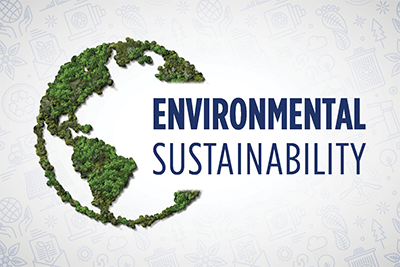Resources on Environmental Sustainability in GI
Increasingly, groups of GI physicians are observing the impact of current GI protocols on the environment and raising concerns about sustainability—disposing of items used in GI procedures that could be recycled, large amounts of waste going to landfills, excessive energy use, and other routines that contribute to the large carbon footprint of GI. This includes the refuse commonly produced by GI care and procedures.
Some of the authors involved in the College’s programs and publications on environmental sustainability argue that efforts to reduce the carbon footprint of GI practices is preventive care for current and future generations, and that even small changes can have a lasting impact and lower our contribution to climate change.
The resources below reflect recent efforts by ACG to bring attention to this emerging issue and offer guidance and inspiration on ways to advocate for and implement harm-reduction measures and strategies in your practice.
ACG Climate Change/Environmental Sustainability Resources
ACG MAGAZINE – Conversations with Women in GI: The Movement Toward Environmental Sustainability in GI
Jill K. J. Gaidos, MD, FACG; Rabia A. de Latour & Swapna Gayam, MD, FACG, Summer 2023
Virtual Grand Rounds – Healthcare Carbon Footprint: “Scope” of the Problem
Swapna Gayam, MD, FACG, April 1, 2021
Podcast – Healthcare Carbon Footprint: “Scope” of the Problem
Swapna Gayam, MD, FACG, December 2020
Practice Management Toolbox – Going Green: Improving your Endoscopy Unit’s Carbon Footprint
Rabia de Latour, MD, November 2020
Articles from The American Journal of Gastroenterology
GI Multisociety Strategic Plan on Environmental Sustainability
Pohl, et al., published December 2022
Climate Change and Gastroenterology: Planetary Primum Non Nocere and How Industry Must Help
Haddock, et al., published March 2022
Environmental Impact of Endoscopy: “Scope” of the Problem
Swapna Gayam, MD, FACG, published December 2020
WGO Climate Course

The World Gastroenterology Organisation (WGO) is offering a free webinar series, occurring every two weeks from March to June, on climate change topics and the significant implications for digestive health and disease.

